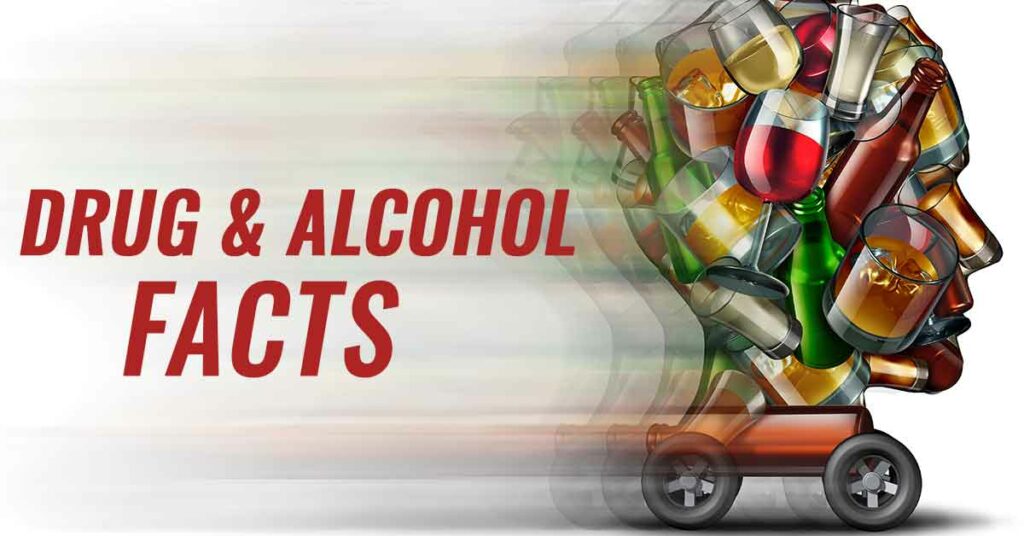
Substance abuse is a major problem around the world, and addiction is causing a lot of havoc for both men and women alike. Drug abuse has serious consequences on the physical life of people, including their mental health. Here are a few facts about alcohol and drug use.
Alcohol and drugs affect your brain
The human brain physically adapts to their environment; that is why humans perform better at whatever we do. When you continuously take alcohol, the brain interprets it as a new environment; therefore, the nerve cells and brain connection would change to function better with alcohol. The brain does not adapt to alcohol, and you would keep on experiencing problems when you stop drinking.
While long-term use of drugs causes changes in brain chemical systems and circuits and can affect the following
- Judgment
- Stress
- Learning
- Behavior
- Decision-making
- Memory
As a person continues to use drugs, the brain would adapt to it by reducing the ability of cells in the reward circuit to respond to it. Brain adaptations make it harder to derive pleasure from a dosage that gave them pleasure in the past.
Alcoholism and alcohol abuse are not the same
Alcohol abuse means drinking in a way that it causes problems in aspects of a person’s life. Examples of such include getting your driver’s license revoked as a result of drunk driving, missing your classes, neglecting domestic duties, and lots more. While alcoholism is when someone drinks to the point that the neurons in the brain start to create an obsession. This means you would feel like drinking all the time, and you start engaging in compulsive drinking. Sometimes you may intend not to drink, but you can no longer control it.
Alcohol affects women and men differently
Women and men metabolize alcohol very differently due to the enzymes found in the stomach, the ratio of muscle to fat, hormones, and water concentration in the body. The effects of alcohol are more severe on women than in men. The female system can absorb more alcohol but metabolize more slowly than men; this means they are at a greater risk of the long term adverse effects of alcohol. On average, men consume more alcohol, which leads to more alcohol-related illnesses and deaths.
Binge drinking can be dangerous
It can be very dangerous to your health when you drink excessively in a very short space of time. Drinking too much in a short space of time is known as Bing drinking. Alcohol has the potentials to inhibit breathing when you consume too much. Binge drinking can also cause dehydration, vomiting, seizures, unconsciousness, and lots more.
Abrupt withdrawal can be dangerous
If you are addicted to alcohol/drugs and stop abruptly, some nerve cells will develop a condition known as delirium tremens. If DTs is severe, it can cause uncontrolled seizures that would require the patient to be hospitalized. Therefore it’s best for an alcoholic to withdraw gradually.
Alcoholism and drug use is related to genetics
The chances of becoming an alcoholic is partly related to genetics. The other part is caused as a result of environmental factors. The genes that people are born with also have a very big role to play in them become drug addicts. Genes account for about half of a person’s risk factor in becoming addicted to drugs. The rest has to do with environmental factors.
Alcohol and drug use is a leading cause of death around the world
It is estimated that around 88,000 Americans and 3 million people around the world die annually from alcohol-related causes. Alcoholism is also related to one-third of all driving fatalities, making it the third leading cause of death in the world. Even though it is preventable, the number of casualties is growing every day. Excessive drinking increases the risk factor of suffering from cervical cancer, rectal, stomach, mouth, and colon cancers
Alcoholism is most common in wealthier nations
It is estimated that alcohol-use disorders are highest in wealthier nations. The WHO estimates that about 46 million women and 237 million men suffer from alcohol-related issues, with the highest prevalence in wealthy European nations. The American’s is next in alcoholism after the Europeans.
Cost of Substance abuse
The overall costs of substance abuse amount to $224 billion annually around the world. While the costs to the health care system account for about $25 billion.
















